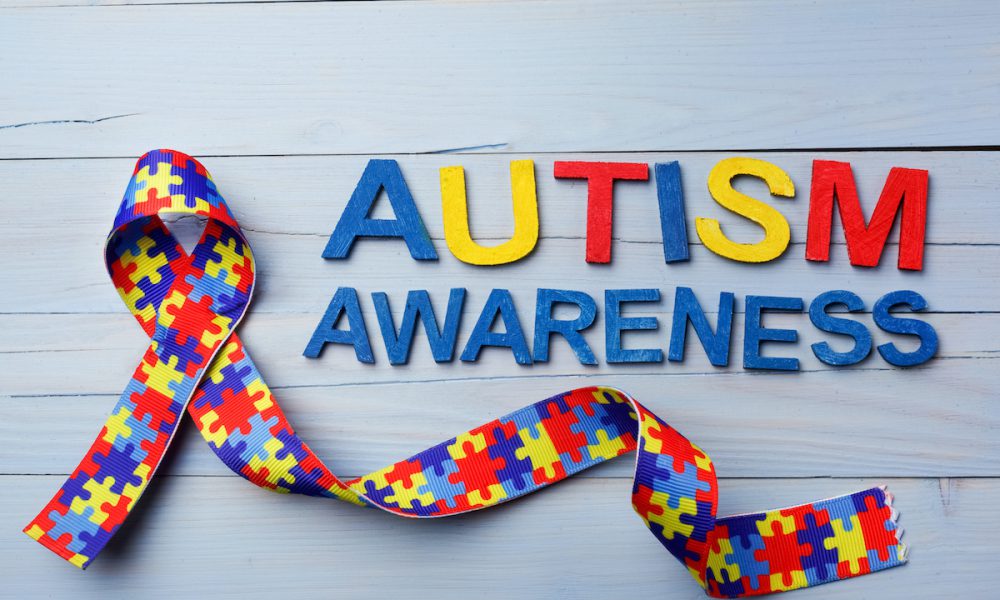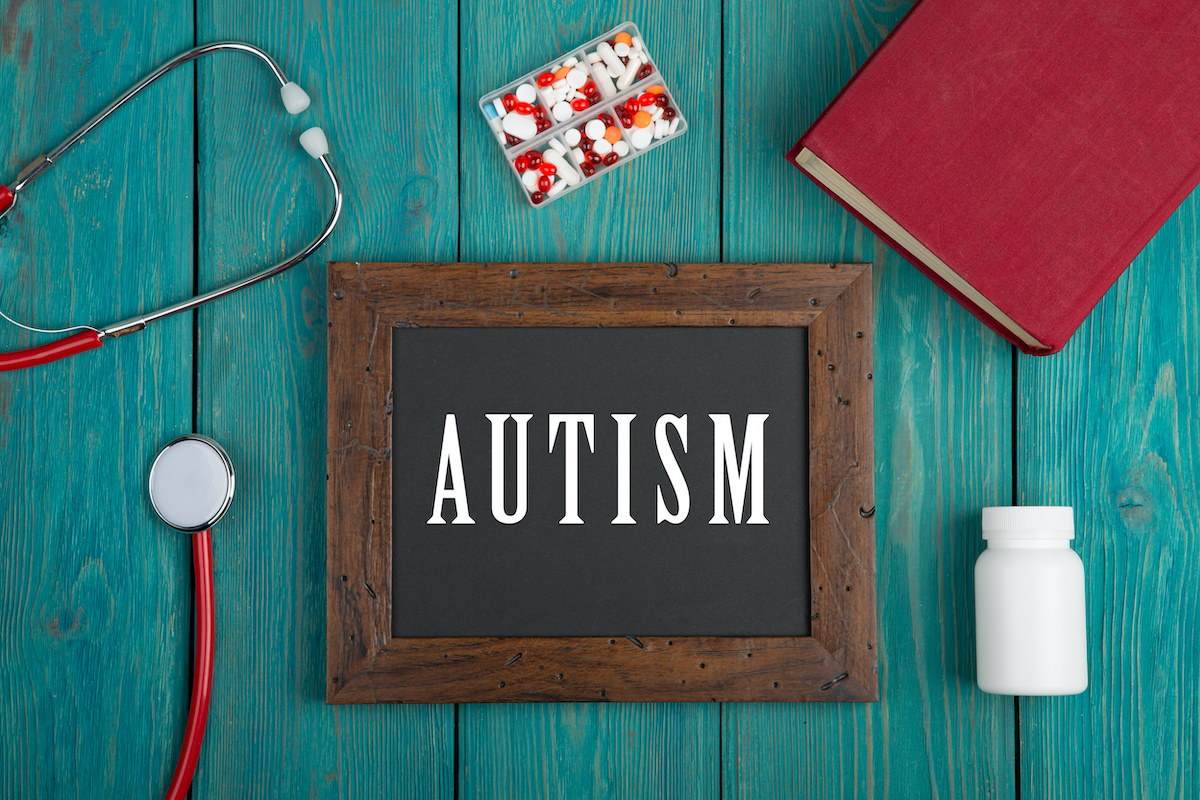
In recognition of World Autism Awareness Month, our team at Palm Harbor Pharmacy wants to help our customers better understand this neurological and developmental disorder. Many people who care for a child with an Autism Spectrum Disorder (ASD) look to nutritional supplements to support the child’s health or to even improve their condition. We hope you find our nutrition considerations for kids with ASD to be a helpful resource for making informed decisions about supplements for your child.
What is an Autism Spectrum Disorder?
Autism Spectrum Disorders are complex, lifelong developmental disabilities that appear in early childhood and are defined by a set of behaviors that range in degree of severity and impact on a person’s life. The behaviors that denote a “spectrum disorder” can impact a person’s social skills, relationships, communication skills, emotional regulation, and self-regulation to varying degrees of severity. ASD affects each person differently; no two cases of spectrum disorder are the same in their presentation.
The Autism Prevalence Report (2019) published by the Centers for Disease Control in the U.S. indicates there is 1 case of autism out of every 59 people. These rates may be higher or lower when segmented by age group, gender, and other demographic variables, but rate have increased as a whole. In part, the increase in prevalence is due to better detection, awareness, and opportunities to seek service.
Characteristics and Diagnosis of Autism
Two specific characteristics presented in an individual’s behavior lead to a medical diagnosis of Autism:
- Persistent difference in the manner of communication, interpersonal relating, and social interactions across different environments and situations.
- Restricted and/or repetitive behavior, patters, activities, and interests.

This means a person with Autism can have…
- nonverbal or have atypical speak patterns
- trouble understanding nonverbal communication (signs, body language)
- difficulty forming and maintaining friendships
- difficulty participating in normal conversation (statement/response)

A person who has Autism may display behaviors such as…
- repetitive sound or phrases (echolalia)
- preference for routine or “sameness”
- repetitive physical movement
- having difficulty with change, transition in routine
- being rigid
- having intense interest in something and/or restricted range of interests
- extreme sensitivity to stimuli (touch, texture, taste, smell, movement) OR
- significantly low sensitivity to stimuli
Diagnosis of Autism is a multifaceted process taking into account a great deal of medical, psychological, behavioral, and social-emotional data including observation, self-report or family report, and is made over a period of time.
Please note that Asperger’s Syndrome (AS) is an Autism Spectrum Disorder but is on the higher-end of functioning and with a unique set of diagnostic criteria. In fact, many people with AS may not be properly diagnosed until young adulthood or even older. People with Asperger’s are usually quite capable of caring for themselves and functioning within an education system and in society. Most “Aspies” —as they affectionally refer to themselves—will go on to drive, acquire advanced degrees, and live a productive life. However, not every person with Asperger’s is able to have a full life; some will need full-time care for their lifetime.
Who Gets Autism and Why?
 Autism is color-blind and indifferent to race and ethnicity: ASD can affect anyone. However, there are disparities in race and entice groups in identification of young children, which can be explained, in part by disparities in access to healthcare to receive an accurate diagnosis. Overall, boys are 4.5 times more to be diagnosed with ASD than girls of the same age.
Autism is color-blind and indifferent to race and ethnicity: ASD can affect anyone. However, there are disparities in race and entice groups in identification of young children, which can be explained, in part by disparities in access to healthcare to receive an accurate diagnosis. Overall, boys are 4.5 times more to be diagnosed with ASD than girls of the same age.
There is no known single cause for development of ASD. The interplay of biology (genetics, brain structure and function), psychology (mental and emotional factors), and social factors are all likely involved with biology being a driving force in the development of ASD.
Nutritional Considerations for Kids on the Spectrum
 Like all children, those who have an ASD need a healthy diet of whole grains, a rainbow of fresh fruits and vegetables, and lean protein. They also need to moderate their intake of sweets and processed/packaged foods. However, certain characteristics of autism make feeding a child with this neurodevelopmental condition much more challenging than feeding a child who does not have ASD.
Like all children, those who have an ASD need a healthy diet of whole grains, a rainbow of fresh fruits and vegetables, and lean protein. They also need to moderate their intake of sweets and processed/packaged foods. However, certain characteristics of autism make feeding a child with this neurodevelopmental condition much more challenging than feeding a child who does not have ASD.
Kids on the Spectrum tend to be far more selective in the foods they will eat in ways that very different to a child who is just being a picky eater. The food and eating selectivity of children with autism stems from their hypersensitivity to their own sensations and perceptions, specifically to the taste, smell, and/or texture of food as well as to where and how food is served. As a result, many children with autism can develop nutrient deficiencies. The nutrient deficiency, as far as the science shows, is notbecause they have autism, but because of the way symptoms of autism have manifested and affect behavior, perception, and sensation.
Nutrients that may be Lacking in Kids on the Spectrum
 Some studies have shown that children with ASD may consume inadequate levels of certain nutrients, namely vitamins and minerals. When a person is lacking in specific nutrients over time, that causes a chain reaction in the body. This is a problem because the body relies on vitamins and minerals to create other chemicals that are used for specific functions, such as growth, immunity, repair, and maintenance.
Some studies have shown that children with ASD may consume inadequate levels of certain nutrients, namely vitamins and minerals. When a person is lacking in specific nutrients over time, that causes a chain reaction in the body. This is a problem because the body relies on vitamins and minerals to create other chemicals that are used for specific functions, such as growth, immunity, repair, and maintenance.
Nutrients that have been identified as commonly lacking in kids with Austin Spectrum Disorders are:
- Vitamins: A, B12, C, D3
- Minerals: Calcium, Iron, Folate (B9), Magnesium, Zinc
- Omega-3 Fatty Acids
This is not to say that parents and caregivers should rely on a nutritional supplement to give their child with ASD missing nutrients. It is vitally important that all children obtain their nutrients from foods:The body digests and absorbs nutrients from foods in a complex process that requires synergy of nutrients.
 To determine which, if any, nutrients your child with autism may be lacking in their diet, or if they may have a nutrient deficiency, you need to do a few things:
To determine which, if any, nutrients your child with autism may be lacking in their diet, or if they may have a nutrient deficiency, you need to do a few things:
- Talk to a nutritionist or dietician who specializes in working with ASD. You will likely keep a food record for a few days. The nutritionist will evaluate the child’s diet and sensory issues around food. He or she will partner with you and the child’s medical team to address the child’s needs.
- Before giving your child any supplement, check with your child’s doctor.
- Purchase nutritional supplements from a trusted source. Whether your child is prescribed a multivitamin or specific individual nutrients, be sure to buy quality products from a trusted source.
What is a Trusted Source for Nutritional Supplements?
 A trusted source for nutritional supplements is usually a physicians office, registered dietician, or local pharmacy that carries products which have been tested and verified by independent labs.
A trusted source for nutritional supplements is usually a physicians office, registered dietician, or local pharmacy that carries products which have been tested and verified by independent labs.
At Palm Harbor Pharmacy, our friendly pharmacists can provide education about trusted nutritional supplement product lines that align with sound medical advice and your child’s needs. We can help you select the right supplements and provide guidance on the best ways to take them. We especially carry the already active forms of key supplements, such as methylfolate and reacted Zinc and Magnesium, to enhance bioavailability.
We have special programs that your doctor or dietician may indicate are appropriate for your child:
- Kids Vitamin Club (FREE for children under age 12)
- Food Sensitivity Testing and Micronutrient Testing (learn more)
- Custom Prescription (Compounding)

Autism Awareness Events, Tampa Bay
Event Brite Listings for Autism events inclusive of art, education, golf, fitness and more.
Autism Aide Run for Awareness – Tampa
Autism Awareness Foundation Fundraiser – St. Petersburg
Autism Speaks events – Palm Harbor area (also searchable by zip code)
Friends of HUG (Help Us Gather) – events for all persons living with special needs
Autism Shifts events, workshops, courses, meetings
We Rock the Spectrum – Clearwater
Search Family-Friendly Tampa Bay for inclusive events and ASD specific events
World Autism Month resource page
Refer to the American Autism association and other national and local chapter association websites for events and programs.
Many local and regional museums, aquariums, amusement parks etc., will have “Spectrum Awareness” events with special operating hours for families/individuals with special needs.
Resources
Nutrition and Autism (Autism Speaks Association)
Sharp, W.G., Berry, R.C., McCracken, C. et al. “Feeding Problems and Nutrient Intake in Children with Autism Spectrum Disorders: A Meta-analysis and Comprehensive Review of the Literature.” J Autism Dev Disord 43, 2159–2173 (2013). https://doi.org/10.1007/s10803-013-1771-5
Autism Speaks “Supplements for kids with autism may lead to nutrient imbalances.”
Autism Speaks Grants for families, individuals, scientists, and others.